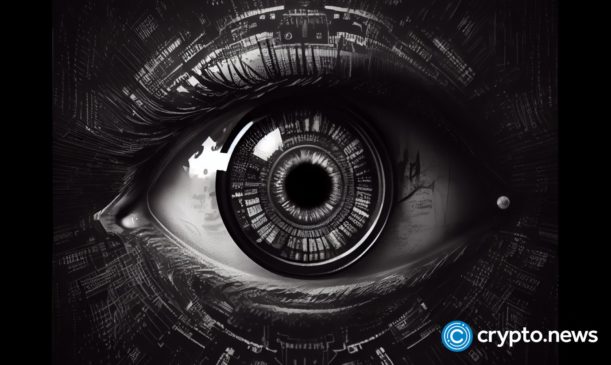On Aug. 2, Worldcoin announced plans to expand its global operations, allowing other organizations to use its iris-scanning and identity-verification technology.
Launched July 25, Worldcoin (WLD) operates by providing users a digital ID and free cryptocurrency in some nations in exchange for iris scans, making strides toward establishing a consolidated “identity and financial network.”
Users globally have been subjecting themselves to facial scans by an elegant, spherical device termed “orb.” This action, despite concerns from privacy activists about the potential misuse of the biometric data, has drawn approximately 2.2 million participants, primarily during a two-year-long trial phase. Regulatory bodies in Britain, France, and Germany are scrutinizing the project.
“Ours is a journey toward establishing the most extensive financial and identity community possible,” expressed Ricardo Macieira, general manager for Europe at Tools For Humanity, the San Francisco and Berlin-based organization behind Worldcoin.
In a funding round in May, the company successfully raised $115 million from venture capital investors such as Blockchain Capital, a16z crypto, Bain Capital Crypto, and Distributed Global.
Macieira disclosed plans for Worldcoin to further extend its operations throughout Europe, Latin America, Africa, and “any part of the globe that embraces us.” The Worldcoin platform alludes to various potential applications, such as distinguishing humans from AI, facilitating “global democratic processes,” and indicating a “probable trajectory” towards a universal basic income, albeit these outcomes are uncertain.
Last week, many participants in Britain, India, and Japan admitted their primary motivation for enrollment is the promise of 25 WLD available to verified users. Macieira clarified, “We are unlikely to be the instigators of a universal basic income. If we provide the infrastructure enabling governments or other bodies to do so, we will consider that a victory.”
Organizations could remunerate Worldcoin for the utilization of its digital identity system. For instance, if a café wished to offer a complimentary coffee to every customer, Worldcoin’s technology could regulate the distribution without needing to collect personal data.
This technology’s future lies in open-source development, with plans for anyone to fabricate their version of the ‘orb’ to serve their communities, Macieira added.
Nevertheless, privacy issues are rife. Critics question the wisdom of entrusting such sensitive data to one firm and whether users provide informed consent.
Worldcoin emphasizes their commitment to privacy, promising encrypted storage or deletion of biometric data.
The Bavarian State Office for Data Protection Supervision launched an investigation into Worldcoin in November 2022, citing apprehensions about its large-scale sensitive data handling. Michael Will, the president of the Bavarian regulator, affirmed the need for “absolute clarity” concerning data processing.
Rainer Rehak, an AI and society researcher at the Weizenbaum Institute in Berlin, suggested Worldcoin’s technology use is “irresponsible” and lacks clear problem-solving objectives.
In response to these concerns, the Worldcoin Foundation, a Cayman Islands-based body, stated its adherence to personal data laws and pledged cooperation with requests for privacy and data protection information from regulatory bodies.



